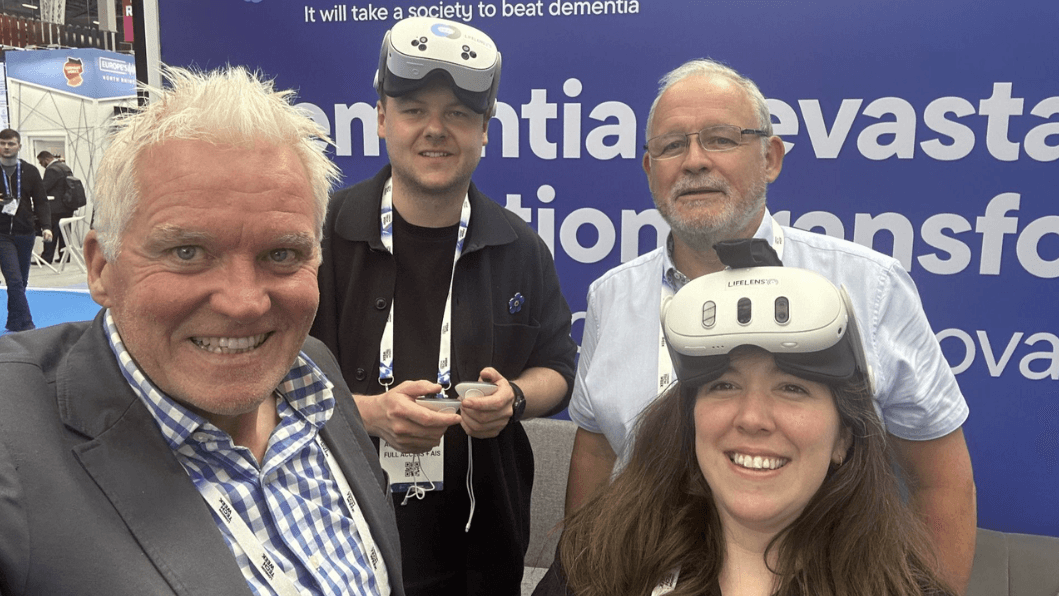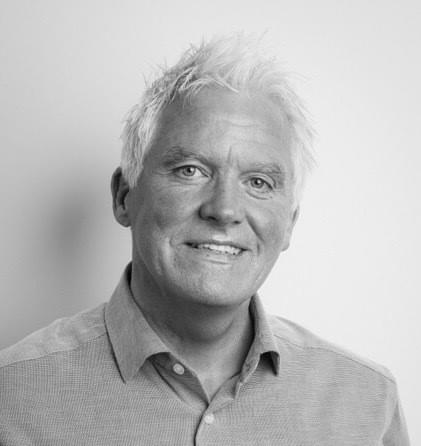Virtual Reality Empathy Platform: Using Technology to Transform Dementia Awareness
Virtual Reality Empathy Platform: Using Technology to Transform Dementia Awareness
When Kevin Gordon co-founded VR-EP his vision was simple: to help people understand dementia in a way words alone never could. Now, his LifeLens platform is used in the UK, South Africa, Canada and Poland.

Virtual Reality Empathy Platform (VR-EP) - led by Perth-based Kevin Gordon - is pioneering the use of immersive VR technology to transform understanding of the lesser-known sensory challenges of dementia.
Built on Epic Games’ Unreal Engine (the software behind the Fortnite game) its virtual reality experiences allow people to see the world through the eyes of someone with dementia and experience the sensory challenges that can often accompany the disease.k
Kevin has spent four years developing the concept to its current iteration and the company is now making an impact across care and education on a global scale.

Originally conceived as a design tool for architects and planners, VR-EP helped professionals understand how buildings, environments and products might appear to those with dementia or visual impairment. Over time, and in partnership with Queen Margaret University Edinburgh, Dementia Services Development Centre at University of Stirling, Age Scotland and Sight Scotland, the product evolved into a training and empathy platform used by carers, educators, and families.
This innovative and exciting platform is called LifeLens VR.
“Dementia is more than just a loss of memory,” Kevin explains. “Through virtual reality empathy filters, LifeLens VR help carers, families, and professionals to understand the sensory and perceptual challenges people with dementia face every day. When carers experience this first-hand, they will often make small but impactful changes that have a profound effect on the quality of day-to-day life.”
The scale of the challenge is stark. Worldwide, 50 million people currently live with the condition with someone developing dementia every three seconds; a figure set to triple to 152 million by 2050. In the UK, dementia costs the economy an estimated £26.3 billion each year, more than cancer and heart disease combined. Yet 38% of people with a friend or family member affected say they don’t know how to help.
VR-EP’s patented LifeLens platform offers a unique solution. By simulating the sensory challenges of dementia and ageing, it builds empathy and insight in ways that textbooks or lectures cannot.
Kevin explains, “The technology has been shown to help reduce slips, trips and falls, ease agitation and anxiety, and prolong independence. These are the real changes that improve lives all while reducing pressure on health and social care systems.”
Building a business on empathy
Education is at the heart of VR-EP’s business model. The company delivers in-person workshops to care teams, sells one-off solo experiences for families and individuals, and licenses a train-the-trainer model to universities and care organisations. The platform is now used in the UK, South Africa, Canada and Poland, where VR-EP is collaborating with Warsaw University on research into the impact of empathy on care delivery.
Talking to the world
Support from the Beyond Scotland Market Development Grant, accessed via Invest in Perth, has been a catalyst for some of this international growth.
An initial grant of £2000 allowed worldwide trademarks to be registered in the UK, US, South Africa and Canada. Following this, a further £2000 enabled a visit to Canada, where Kevin spoke at the 2025 CAN-Sim Conference which was themed around Empowering Nursing Simulation Educators Through Collaboration, Innovation, Scholarship and Mentorship.
“That visit has already generated business, and several universities are seeking funding to integrate VR-EP into their research programmes on empathy in care. It’s rewarding to see our technology being taken seriously at an academic level.”
The next milestone for Kevin is participation in the Techscaler Singapore Health Tech Cohort in October 2025. Techscaler – a Scottish Government-backed programme delivered by CodeBase – is recognised as a prestigious gateway for high-potential scale ups to access international markets.
“Singapore has a strong reputation for combining care and technology,” says Kevin. “We see real opportunities for direct business-to-business sales, as well as potential investment to scale our impact internationally.”
Kevin is quick to acknowledge the support he has received closer to home. “We’ve had fantastic guidance from Perth & Kinross Council. Julie Barnsley has been especially helpful in signposting us to support, and Business Gateway has provided valuable marketing expertise. We have also been mentored through The Angel’s Share program by Finlay Kerr and we look forward to pitching to investors soon.
“Having this local backing and support has been crucial for a growing company like ours and I am grateful to all who have been involved.”
The Beyond Scotland Grant offers up to £3,000 to help Perth & Kinross businesses explore new markets outside Scotland. Covering costs such as trade shows, travel, accommodation, and consultancy, it gives ambitious firms like VR-EP the confidence to step onto the global stage and turn opportunity into lasting success.
The views expressed in this article are the author’s own and do not necessarily reflect Saltire Sentinel’s editorial stance.
